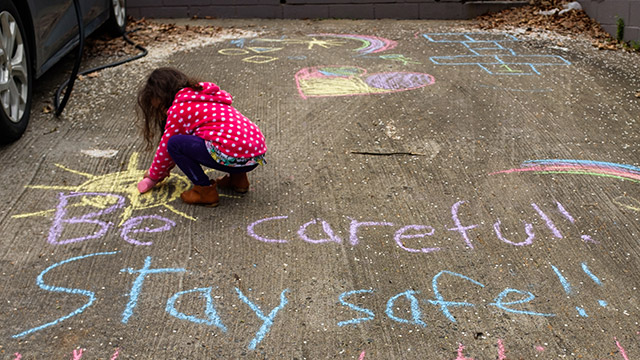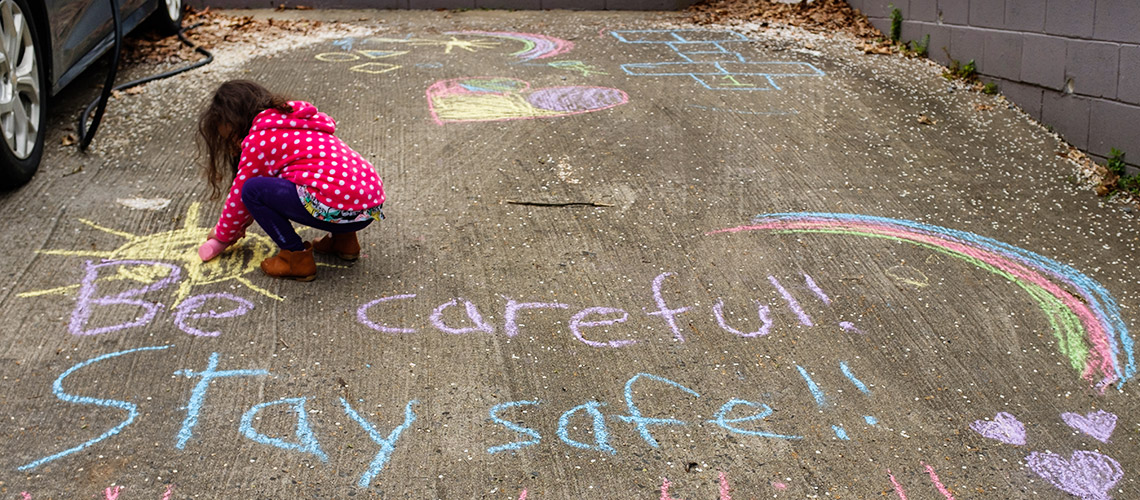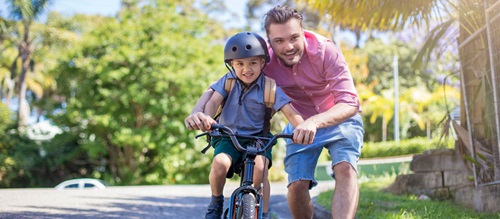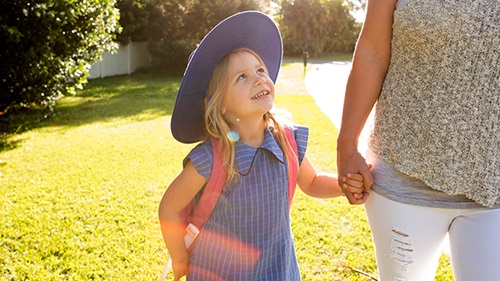Holiday road safety


Preparing children for the holiday season
The increased number of children playing around traffic locally has correlated with an alarming increase in the number of children killed on the state’s roads increasing this year by three to 13 and six higher than the 2018-2020 three-year average. In 2020, there was a 35% increase in serious injuries to 5-16 pedestrians and cyclists in NSW compared to 2019.
The impact of COVID-19 has changed the landscape of how and where children play, with residential streets, footpaths and laneways becoming an extension of their backyard. Coupled with this domestic tourism set to boom this summer meaning more children will be playing in unfamiliar surroundings whilst on holidays.
Hence the importance of engaging children using more bespoke road safety guidance that reflects what is their new ‘normal’ in order for them to shift their mindset towards their safety accordingly.
Helpful tips
Advice for parents
We encourage parents to have a road safety conversation with their children regardless of the recreational activity they are participating in. Highlight the key risks within their neighbourhood, or any roadway differences when on holidays, setting boundaries and running through the different behaviours they should practice when playing in the shared environment.
- Chalk drawings - ensure your child is not working across driveways or shared paths where they risk not being seen by a driver or cyclist. Always have an adult or friend standing up-right when drawing so they can be easily identified by drivers.
- Basketball hoops - when erecting a basketball hoop for your child assess the area for any obvious road safety risks in terms of visibility by drivers and driveway entrances. Encourage your child to wear bright colours when playing in the afternoon/ twilight period.
- Independent play - with older children always discuss their activity plans when organising catch-up with friends and take the relative precautions to ensure they know what to do to stay safe. Encourage them to speak up when they see friends acting in an unsafe manner. Instil confidence to act accordingly to look out for their own safety when congregating with their friends.
- Upskilling - when your child is learning a new skill ensure they adjust their road safety awareness accordingly i.e. learning to ride a bike independently will mean knowing when to sound your bell, how to behave on shared paths and how to slow down when crossing driveways.
- Safety equipment - ensure your child has the correct safety equipment for their activity. Helmets for bikes are not recommended for scooters and skate boards as they do not offer the same protection for this activity. This may mean having two separate helmets for each child depending on their activity.
- Changes in traffic - make your child aware that whilst the roads were quieter during lockdown they will soon begin to get busy again and together adjust your safety mindsets accordingly.
Tips to share with your children
- Treat all roads [even laneways and roadways within holiday parks] with caution
- Always adjust your helmet before every ride/skate to ensure it fits securely
- Bring your own helmet on holidays so that it fits properly
- Make sure to check your bike before going on for a cycle, checking the brakes, bell, reflectors and tyres
- Avoid playing near driveways and carparks as drivers may not see you in their mirrors
- If playing a ball sport near roadways always pause play and stand in a safe spot when a vehicle is approaching
- Wear bright colours or reflective strips to improve your visibility to drivers
- Remove one earphone when listening to music on the move so you can hear any oncoming vehicles
- Always choose a safe place to cross the road regardless of how ‘quiet’ the traffic is
- When playing at skate parks or BMX tracks be mindful of your abilities and don’t over commit to jumps or tricks before you are ready
- Always keep your parents informed of your whereabouts – make sure your mobile is charged and has credit should you need to contact them
- If you feel unsafe say something or remove yourself from the situation
Advice for drivers
COVID restrictions along with seasonal population spikes in our communities means there are always children outside and on our streets, carparks and recreational areas. Reducing our speed and looking for children near roadways is an important practice in protecting our vulnerable road users.
- Remember that children as pedestrians and on bikes are a part of our transport network
- Understand that children may behave unpredictably and due to their small stature they can be difficult to see when driving
- Appreciate that behavioural, perception and risk elements of children’s brains are not fully developed
- Increase your vigilance and adjust your driving accordingly on residential streets, and around facilities where children may be present such as parks, pools and schools
- Be especially alert around zebra crossings and other crossing facilities – coast through crossing facilities with your foot covering the brake
- Take extra caution when reversing out from a driveway as it may be difficult to spot children in your rear-view mirrors
- When exiting an underground carpark ensure you approach the street with caution as the footpath is a shared space
- Take note of any increased recreational activity in your neighbourhood i.e. newly erected basketball hoops or chalk games on the footpaths and adjust your driving accordingly.
For the month of November we invited primary schools across NSW and the ACT to adopt the theme of ‘summer road safety’ with the aim of building momentum on this important issue and creating a positive ripple effect within their wider communities ahead of the holiday season
To support this initiative we launched the NRMA Summer road safety competition with tailored teaching resources and learning activities for all stage groups. We received an unprecedented response to this initiative with over 12,000 students engaged, not only did the students for each winning entry receive a $100 eGift Voucher but they also won $500 towards educational resources for their respective schools!
Metropolitan competition winners
- Early stage one: St. Peters Chanel Primary School
- Stage one: Harbord Public School
- Stage two: Holy Spirit Catholic Primary School, Carnes Hill
- Stage three: Castle Cove Public School
Regional competition winner:
- Early stage one: South Wagga Primary School
- Stage one: Huskisson Primary School
- Stage two: Tuggerah Public School
- Stage three: Sturt Public School



